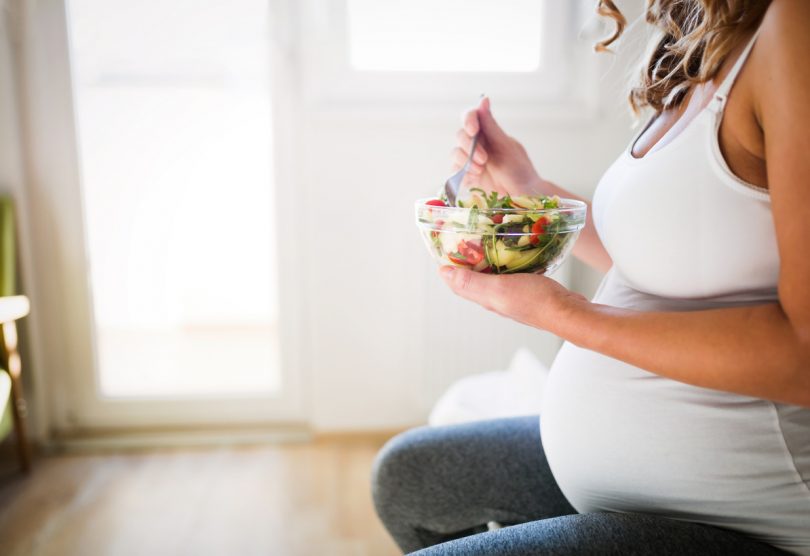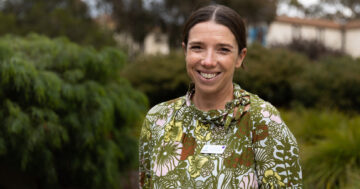
Weighty advice: No need to eat for two, but eat well, exercise and breastfeed.
The good news for women is that having babies won’t make you fat, according to a new study from the University of Canberra that contradicts previous research.
Longitudinal studies show that women gain weight in young adulthood, and previous research has concluded that there is a link between having children and long-term weight gain, but the University of Canberra-led study, which looked at all women, not just mothers, has found no connection.
What it did find was that depression and not having a paid job were factors that contributed to higher weight gain in the long term, while a university education and very high levels of physical activity were protective.
University of Canberra Professor of Midwifery and lead author, Deborah Davis, said there were many interacting factors that might cause weight gain other than pregnancy.
Professor Davis said that her own midwifery practice, where returning mothers over time showed weight gains, led her to wonder whether this was due to pregnancy.
Much to her surprise, the study showed this was not the case.
“As a midwife what I wasn’t seeing was the other women who aren’t having babies who are also putting on weight, and that’s what we found, that all women regardless of whether they’d had a baby or not or how many babies they’d had were all gaining weight over this long-term period. And it made no difference whether they were having kids,” she said.
Professor Davis said women did have a fear of putting on significant amounts of weight with their baby and hanging on to that weight in the long term but pregnancy did not seem to be a factor.
“It can be reassuring for women having babies and planning to have babies that the fact of having a baby itself isn’t necessarily going to be a factor that’s going to contribute to your weight gain,” she said.
Professor Davis said the bad news was that for all women over a 15-16 year period, every time they were surveyed they were heavier.
“So we’ve got this incremental weight gain, and that really does add up. In our study the average weight gain was about 10 kilograms for an average woman,” she said.
“We really have to address that in our lifestyles and in our diet to prevent that weight gain in the longer term.”
Professor Davis said depression, in general, was well known to be a contributing factor in weight gain, but it was not known whether depression causes weight gain or weight gain causes depression.
“It is important for health workers to be cognisant of that when we’re looking after women who have a high BMI, and thinking about their mental health as well because they are associated,” she said.
Professor Davis said the study had found very high levels of physical activity protected against being overweight and obesity but women needed to do significantly more than what was currently recommended in Australia.
The study didn’t examine diet but ”we kind of know that energy in and energy out needed to be about equal to maintain your weight.”
While the study found those with a university education were less likely to gain weight, Professor Davis could only speculate that these women might be more health literate than others.
For those women who are pregnant or planning to do so, she said they did not need to eat for two but focus on the nutrient quality of food rather than the amount, and enjoy a healthy weight gain.
Professor Davis said that breastfeeding used up energy in the postpartum period and had many protective factors for both mother and baby.
However, it needed a lot of support because our society and culture didn’t facilitate breastfeeding.
“I don’t think it’s valued as much as it should be – immunisations are valued, medications are valued, breastfeeding which brings so many benefits really isn’t valued,” she said.
Professor Davis said pregnancy was the perfect time to pass on readily understood health messages to women.
“Pregnancy is a really good time to give women really good education and advice on a primary health level because they are thinking about their health and the health of their family particularly at this time,” she said.
The findings are published in the clinical Obesity journal.




















